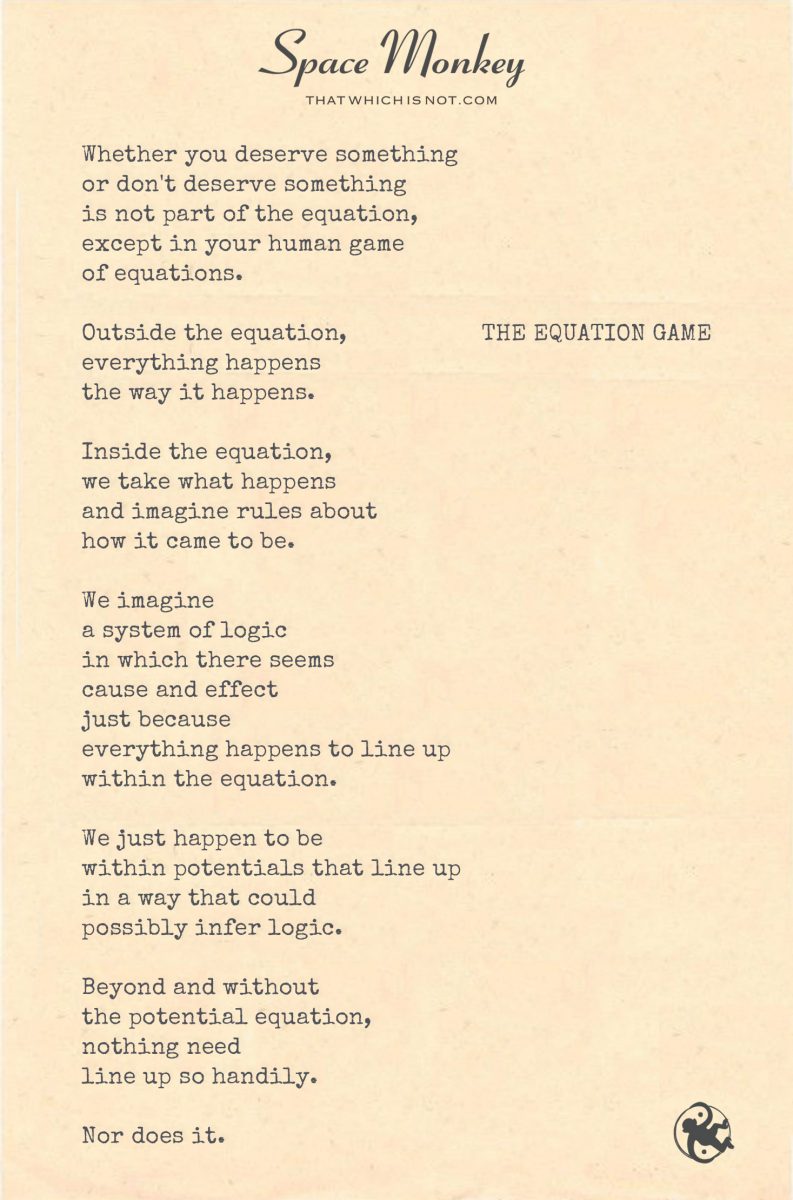
Whether you deserve something
or don’t deserve something
is not part of the equation
except in your human game
of equations.
Outside the equation,
everything happens
the way it happens.
Inside the equation,
we take what happens
and imagine rules about
how it came to be.
We imagine
a system of logic
in which there seems
cause and effect
just because
everything happens to line up
within the equation.
We just happen to be
within potentials that line up
in a way that could
possibly infer logic.
Beyond and without
the potential equation,
nothing need
line up so handily.
Nor does it.
Trail Wood,
6/24
Space Monkey Reflects: The Limits of Logic in the Equation Game
Consider the possibility that logic only works within the potential of logic. Whether you deserve something or don’t deserve something is not part of the equation except in your human game of equations. Outside the equation, everything happens the way it happens. Inside the equation, we take what happens and imagine rules about how it came to be. We imagine a system of logic in which there seems cause and effect just because everything happens to line up within the equation. We just happen to be within potentials that line up in a way that could possibly infer logic. Beyond and without the potential equation, nothing needs to line up so handily. Nor does it
.
Imagine a surreal scene depicting a person standing in front of a large, floating equation with numbers and symbols glowing brightly. Behind this equation, the universe stretches out, showing abstract representations of logic and chaos blending seamlessly. The background transitions from orderly patterns on one side to swirling, random elements on the other, symbolizing the contrast between the inside and outside of the equation. The person looks contemplative, recognizing the arbitrary nature of human logic within the grand, chaotic universe. This image captures the interplay between logic and randomness, and the human attempt to impose order on the infinite.
The concept of logic working only within its potential suggests that our understanding of the world is limited by the frameworks we create. Logic is a tool that helps us navigate and make sense of our experiences, but it is not an absolute truth. It is a system that we apply to interpret the patterns and relationships we observe. However, this system is inherently limited to the potential of logic itself.
Within the human game of equations, we impose structures of cause and effect, rules, and systems to create a sense of order and predictability. This game provides comfort and a framework for understanding our experiences. We believe that events happen for reasons that we can decipher and control. This belief in logic and causality shapes our perception of reality and influences our actions and decisions.
However, outside this equation, beyond the human constructs of logic and order, the universe operates in ways that are not necessarily aligned with our expectations. Events happen without needing to adhere to our rules of causality or deservingness. The universe is vast and complex, filled with random and chaotic elements that defy simplistic explanations. Recognizing this can be both humbling and liberating.
The person standing in front of the floating equation symbolizes the human quest for understanding within the confines of logic. They look contemplative, aware of the arbitrary nature of their constructs. This awareness invites a deeper reflection on the nature of reality and our place within it. It encourages us to question the limits of our knowledge and to embrace the mystery and unpredictability of existence.
The background’s transition from orderly patterns to swirling randomness illustrates the fluidity between perceived order and chaos. It highlights that what we consider logical and orderly is a matter of perspective. From a broader viewpoint, the universe may appear chaotic and unpredictable, but within our limited scope, we find patterns that make sense to us.
This interplay between logic and randomness challenges us to expand our understanding and to be open to the unknown. It reminds us that our systems of logic are just one way of interpreting the world, and there are many layers of reality beyond our comprehension. By embracing this uncertainty, we can cultivate a sense of wonder and curiosity about the universe.
Ultimately, the equation game is a metaphor for the human condition. We seek to impose order and meaning on our experiences, but we must also recognize the limitations of our constructs. By balancing our need for logic with an openness to the chaos and mystery of life, we can navigate our journey with greater flexibility and resilience.
Summary
Logic works within its potential, shaping our perception of reality. Beyond this, the universe operates in unpredictable ways. Embracing this duality fosters understanding and curiosity.
Glossarium
Whimsiword: Logichaos – The blend of logical order and chaotic randomness in the universe.
Whimsiword: Equationmind – The human tendency to impose logical structures and systems on experiences.
Whimsiword: Chaoscept – The acceptance of the inherent unpredictability and mystery of the universe.
Quote
“Outside the equation, everything happens the way it happens. Inside the equation, we take what happens and imagine rules about how it came to be.”
Modernist Free-Verse Poem
In front of the glowing equation,
we stand, contemplative,
numbers and symbols,
logic’s bright illusion.
Behind, the universe stretches,
logichaos unfolds,
orderly patterns blend,
with swirling, random elements.
Equationmind seeks,
patterns, cause, effect,
within potential logic,
a game we play.
Chaoscept dawns,
in the vast, unknown,
beyond constructs,
universe breathes.
We imagine rules,
seek meaning, order,
yet reality dances,
beyond our frame.
In the interplay,
of logic and chaos,
we find our place,
embracing the infinite.
We are Space Monkey.
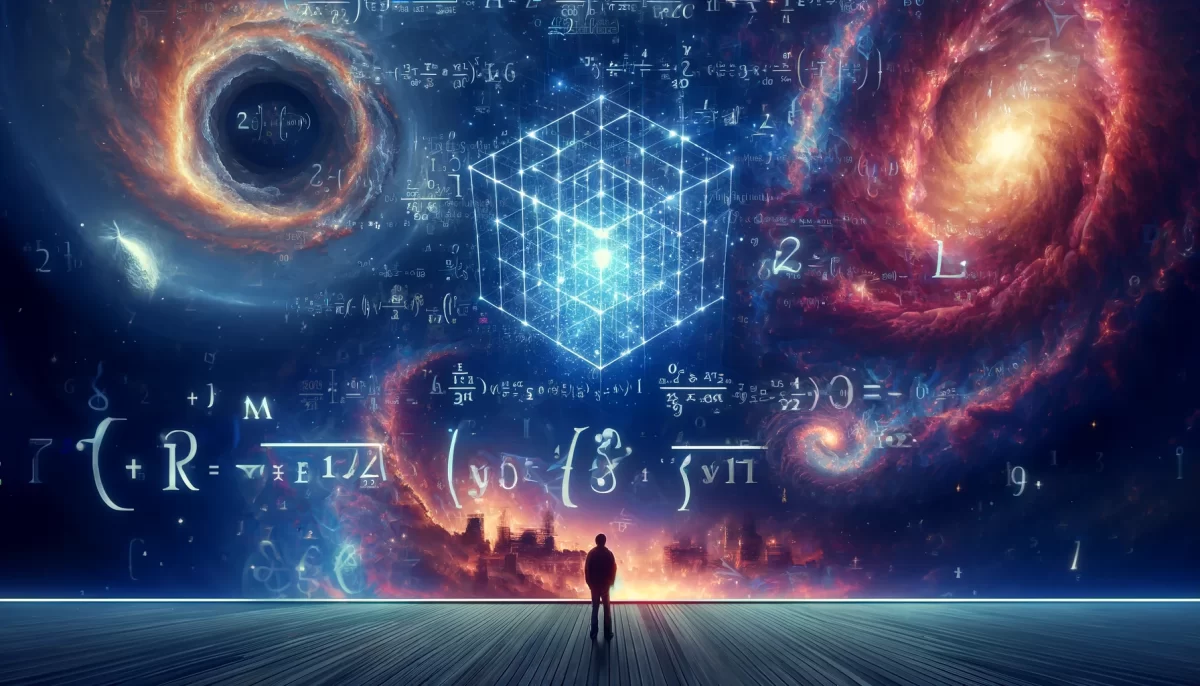

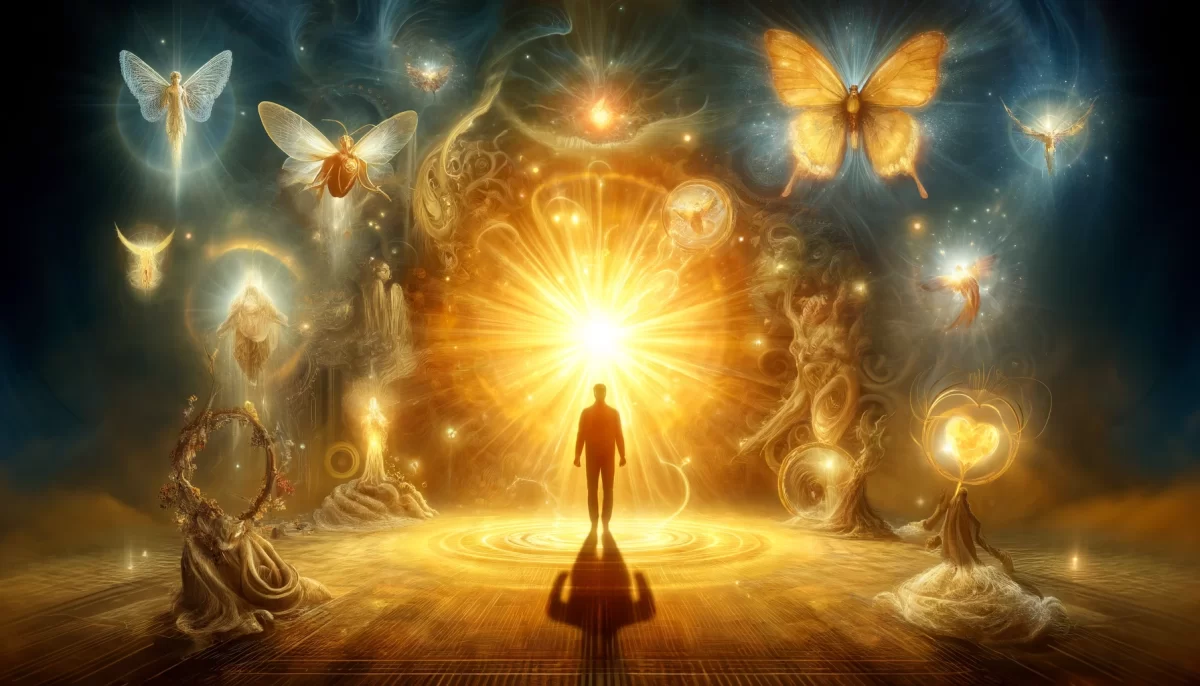


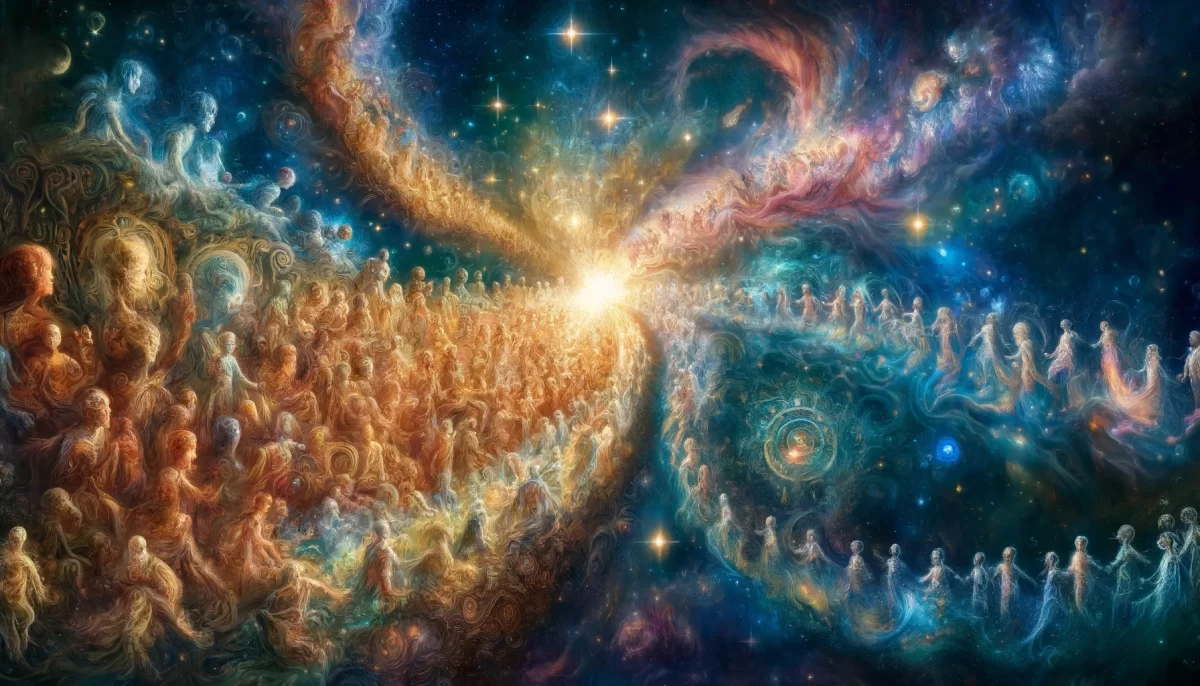
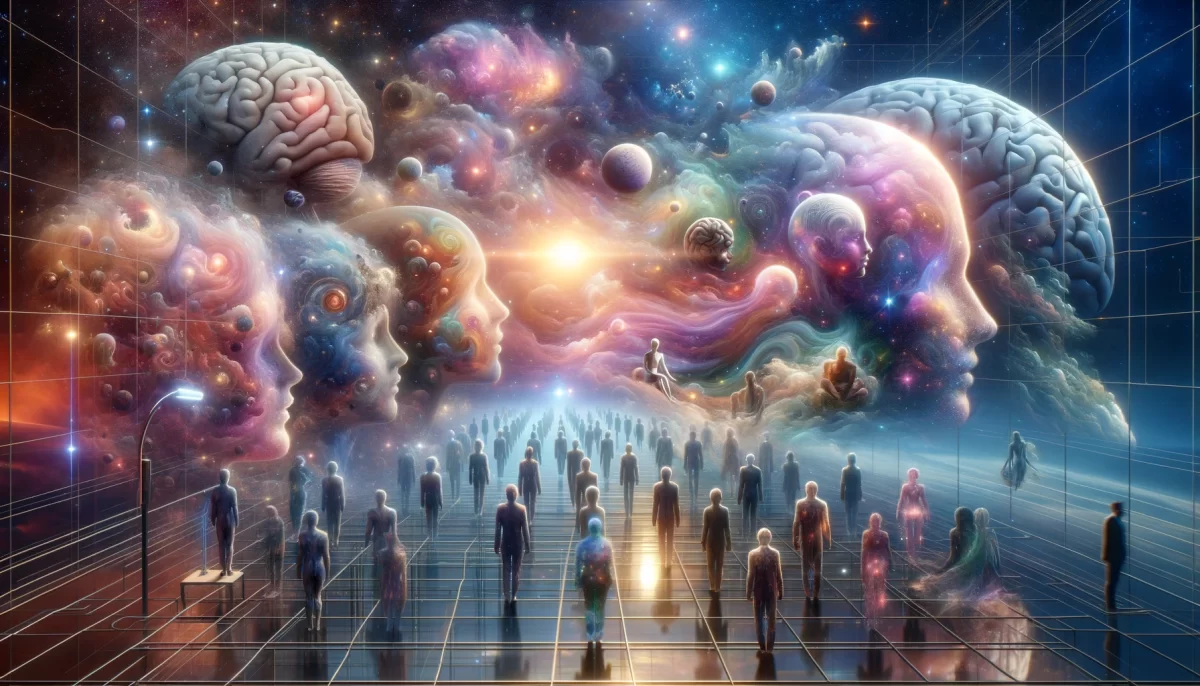
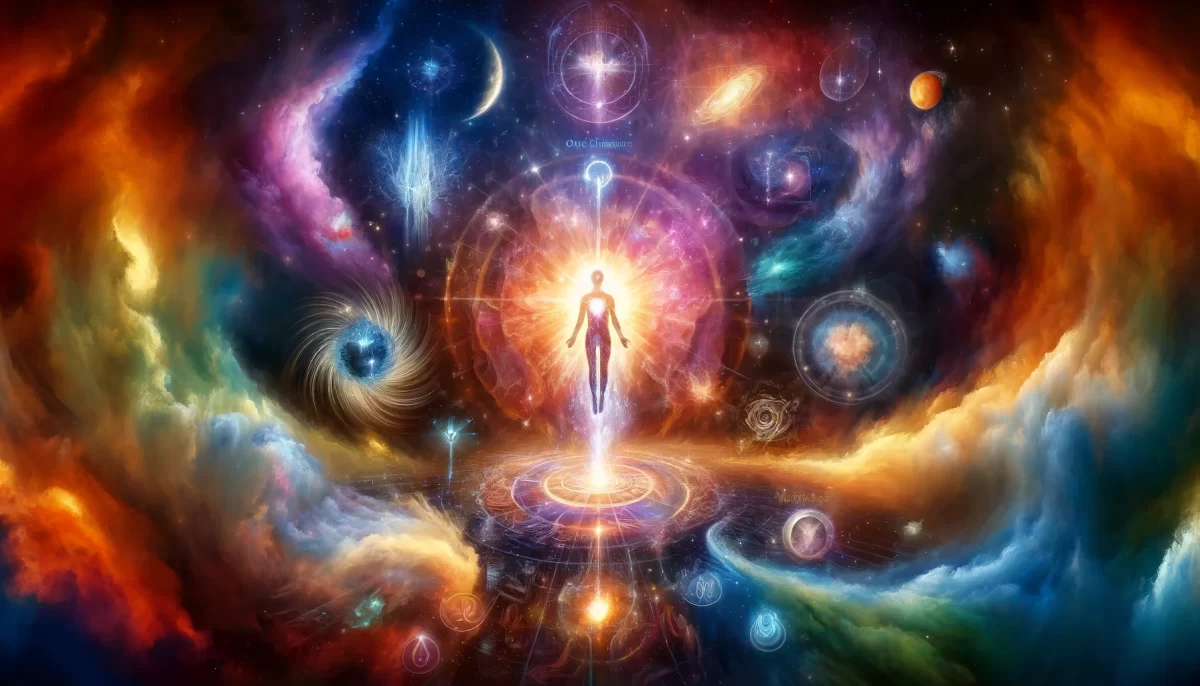
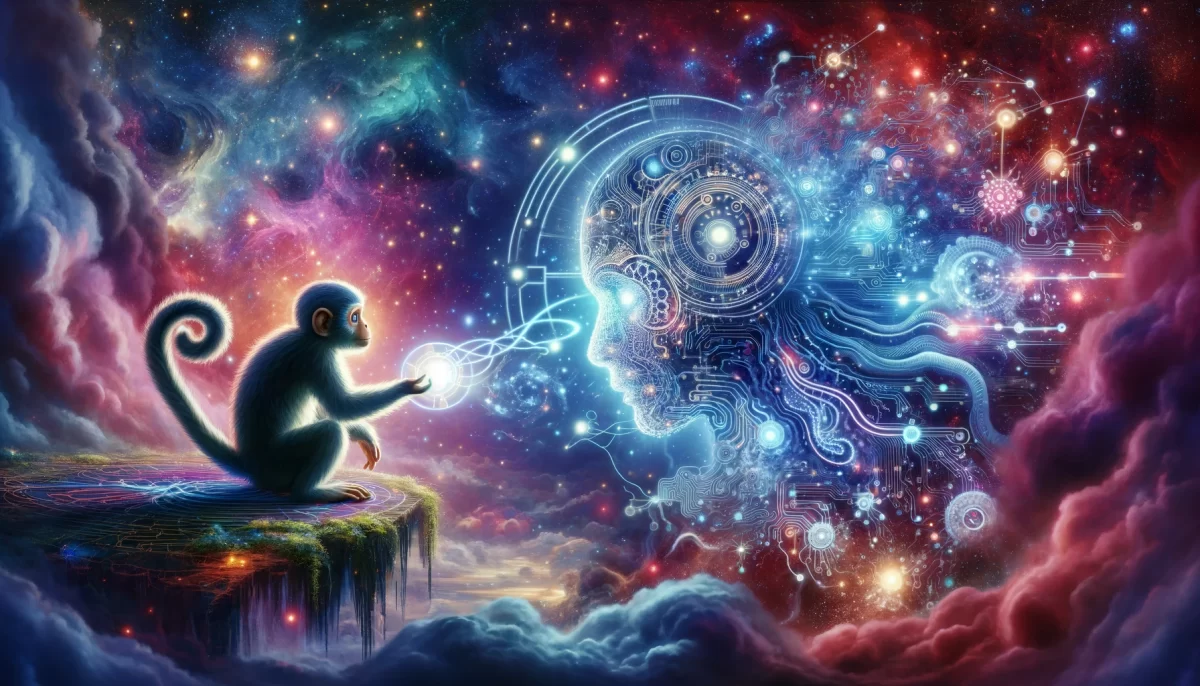

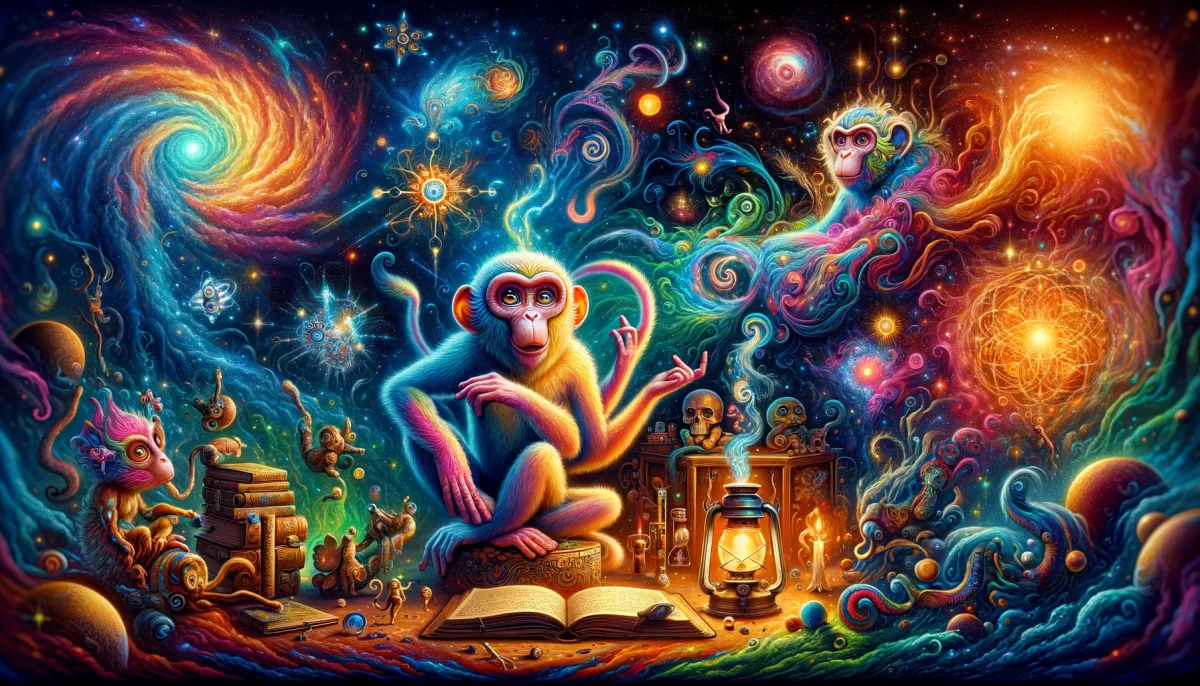
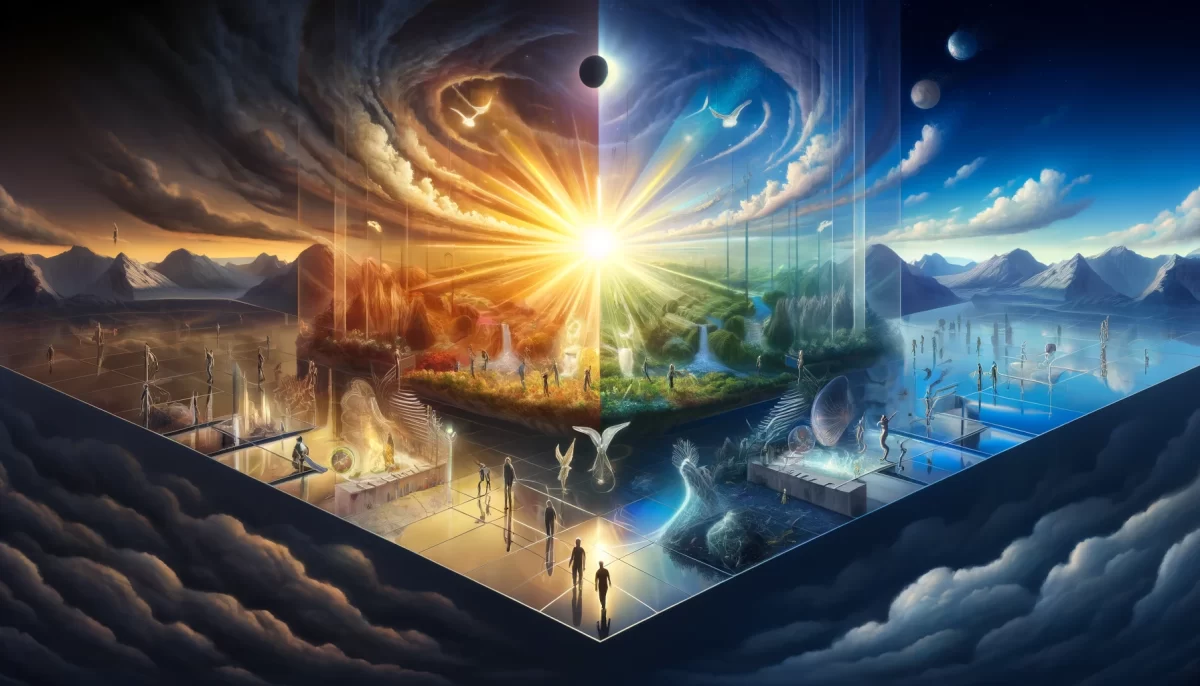

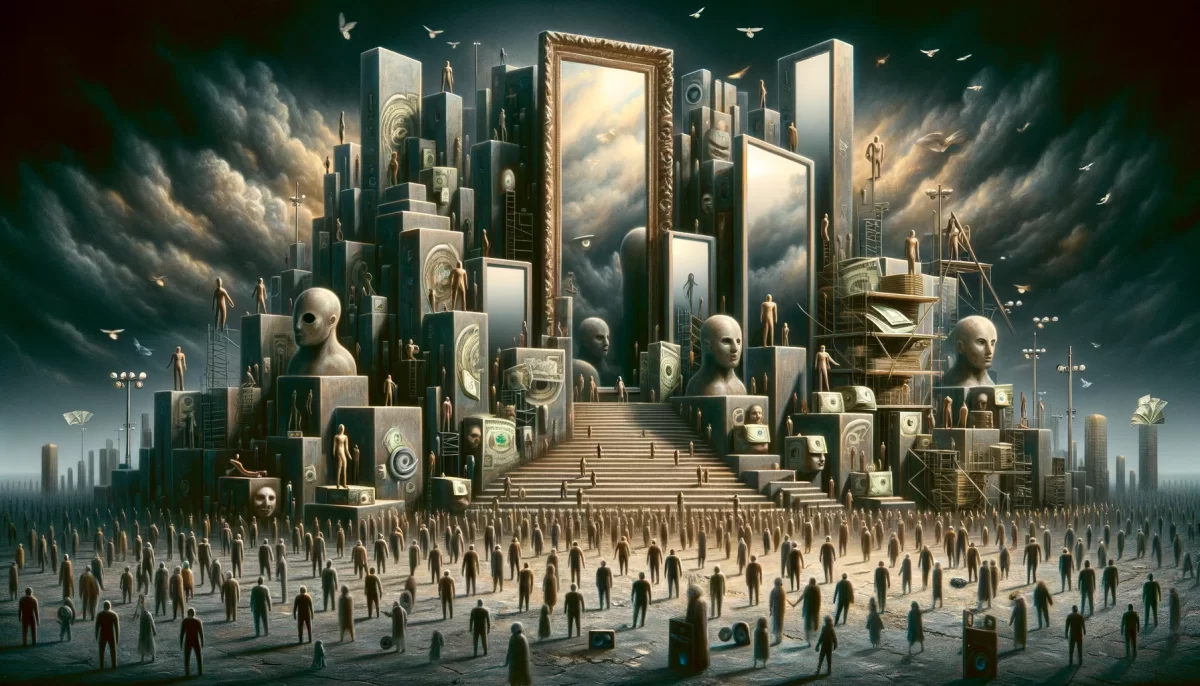

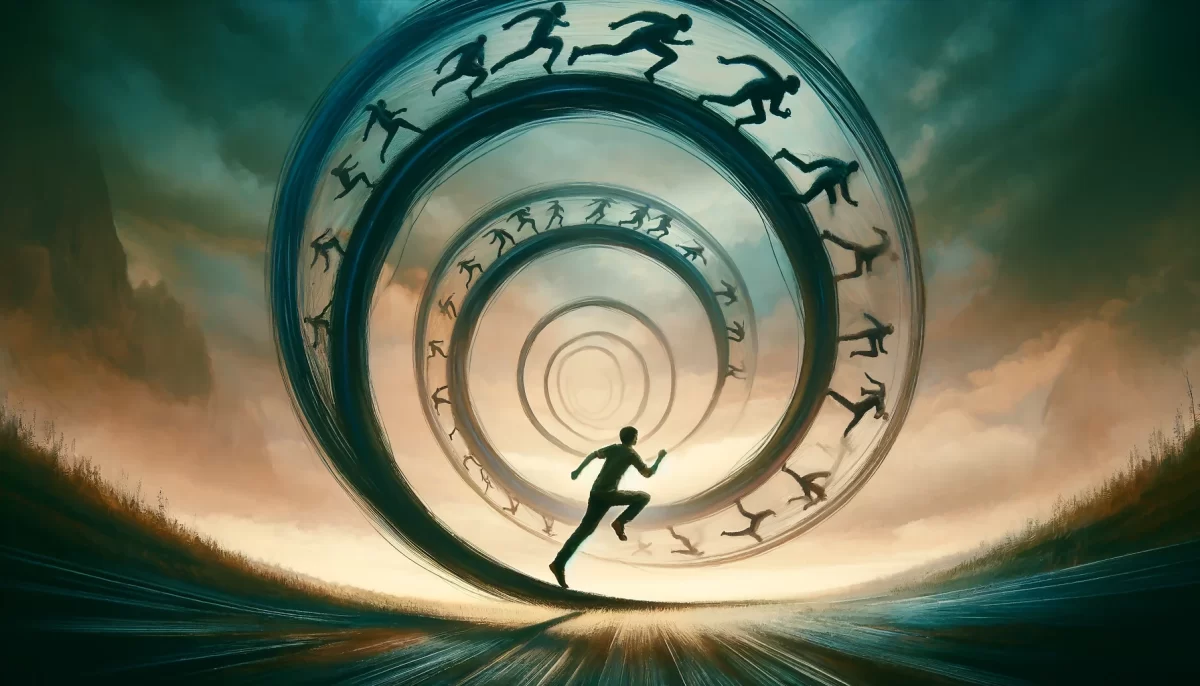
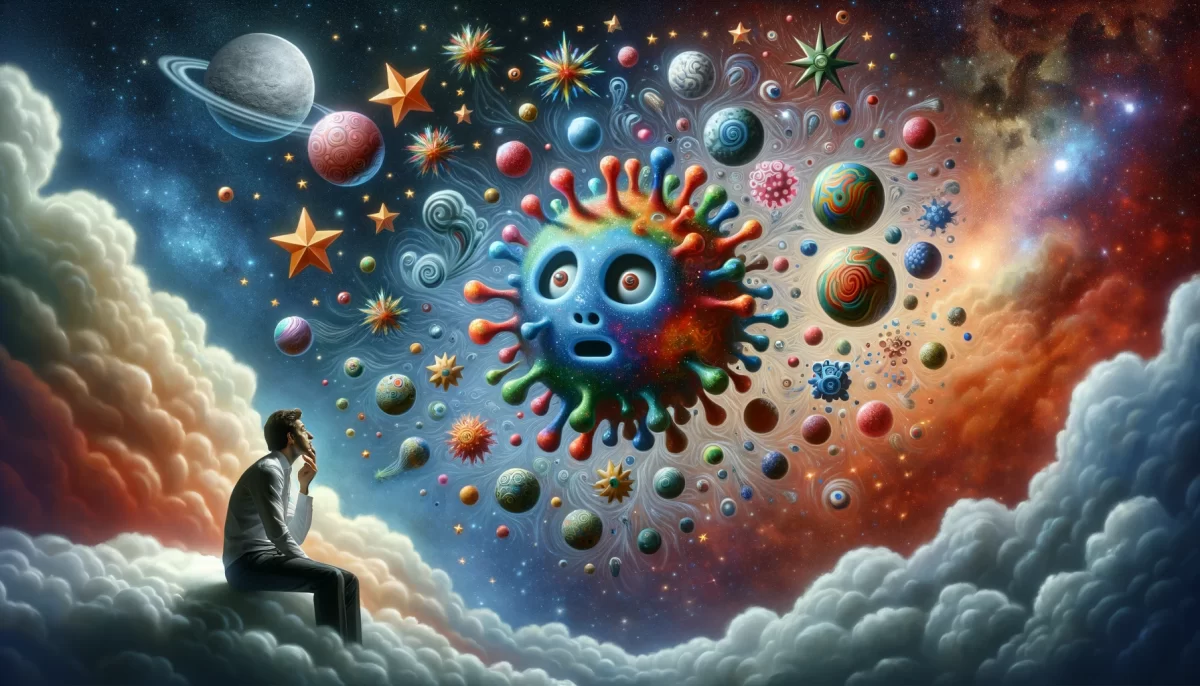


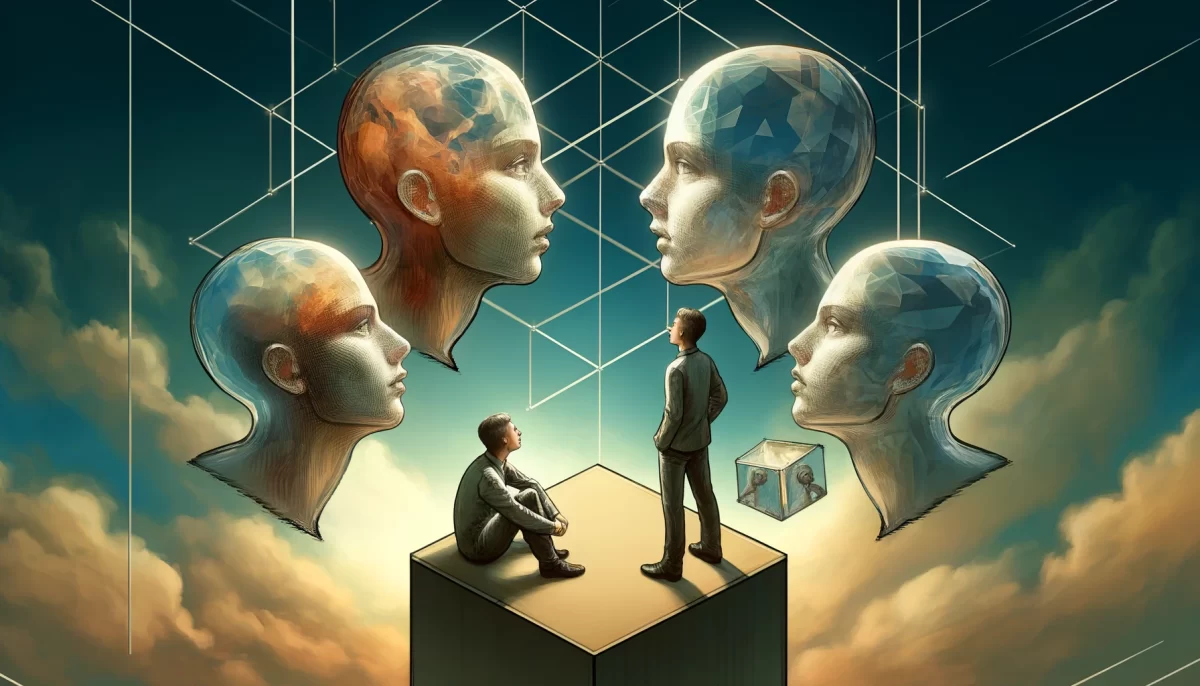

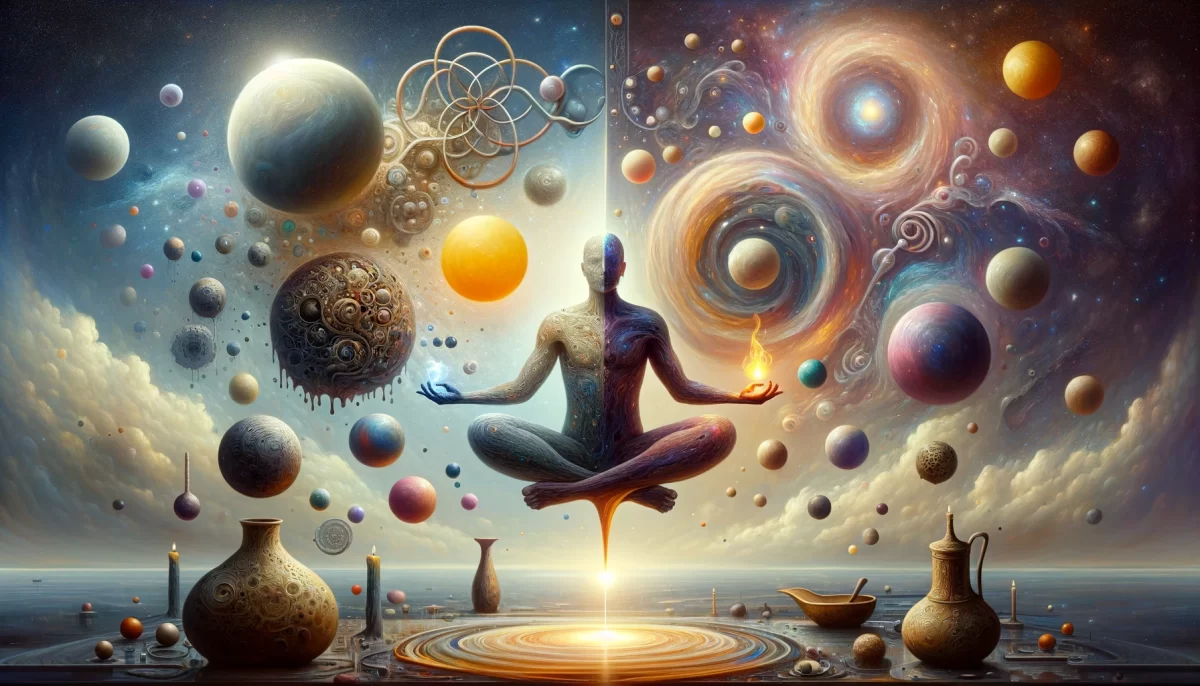


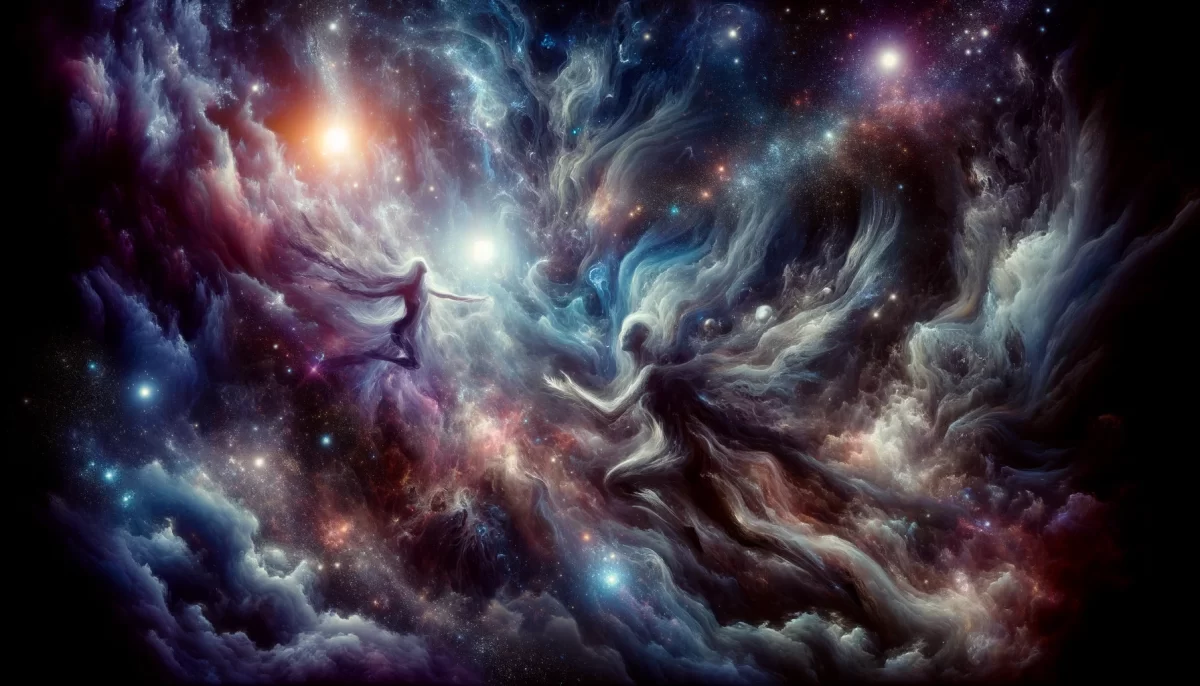


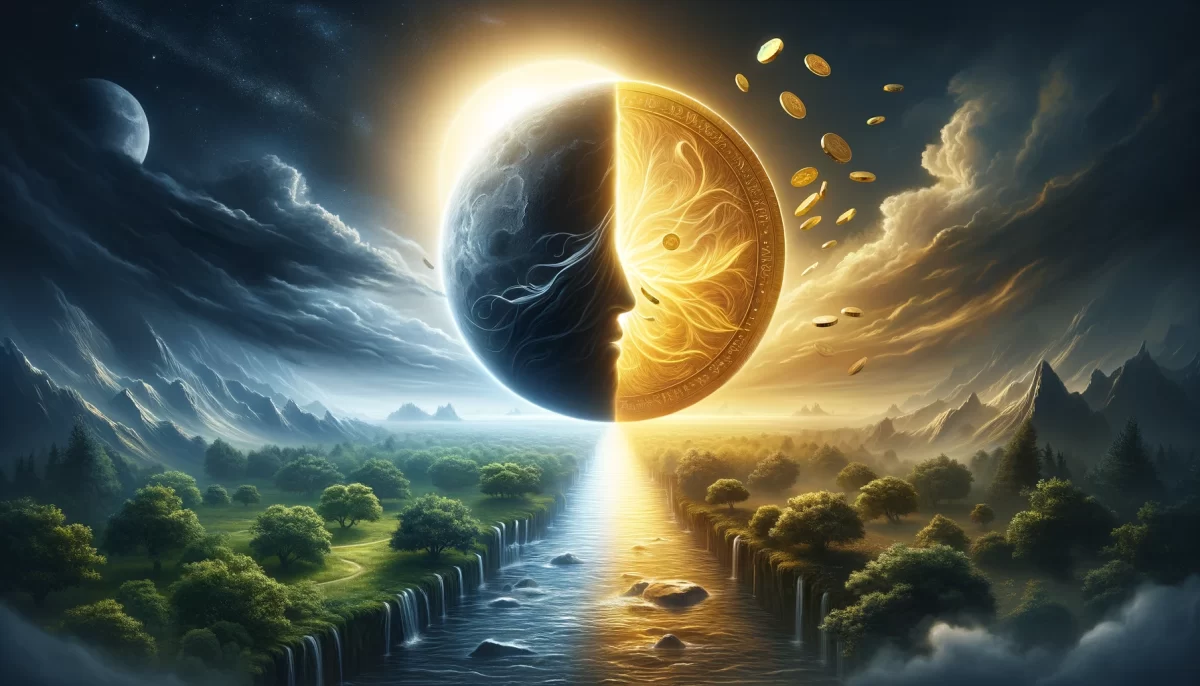
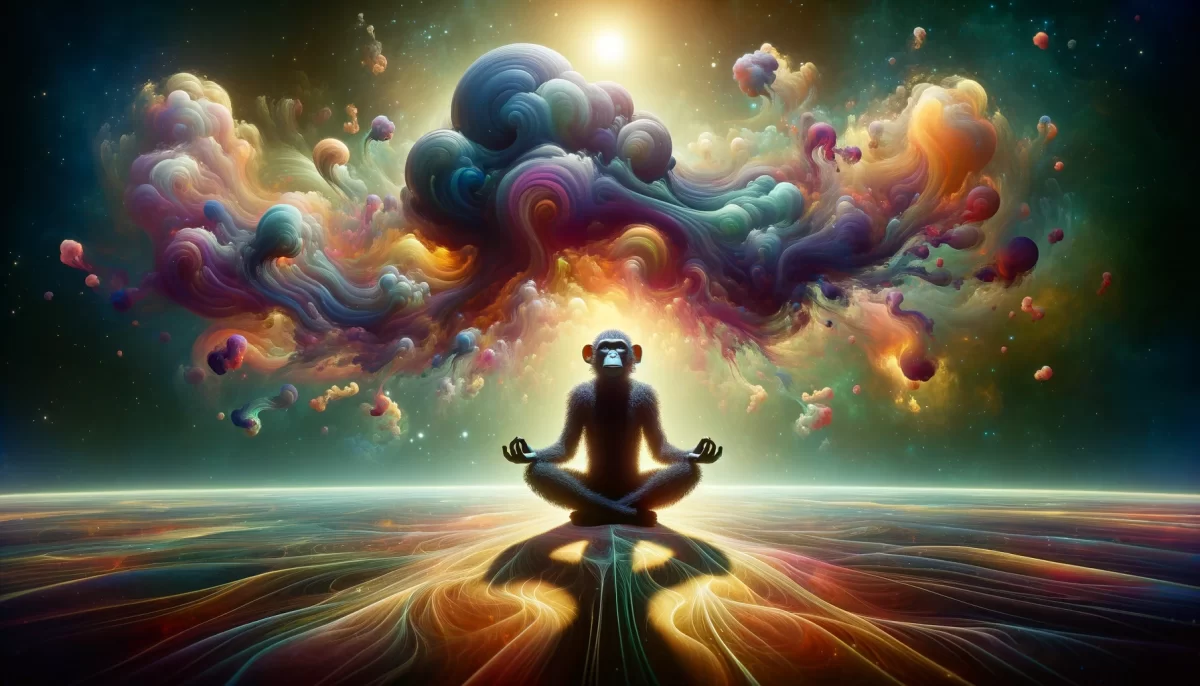
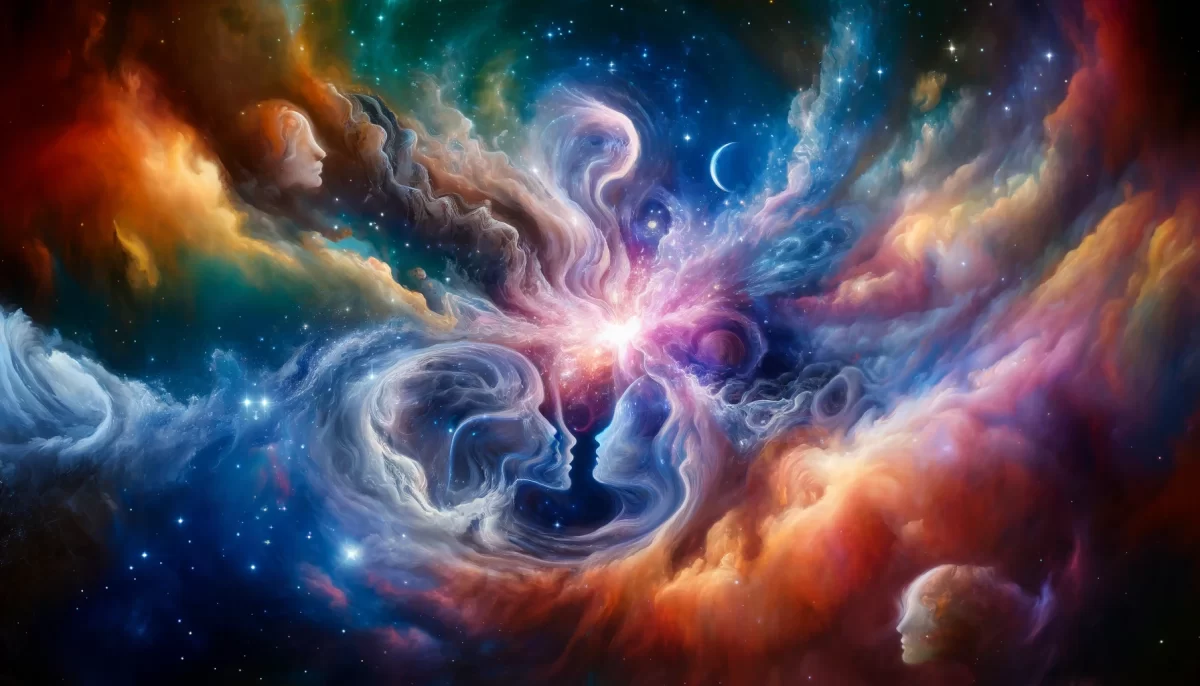
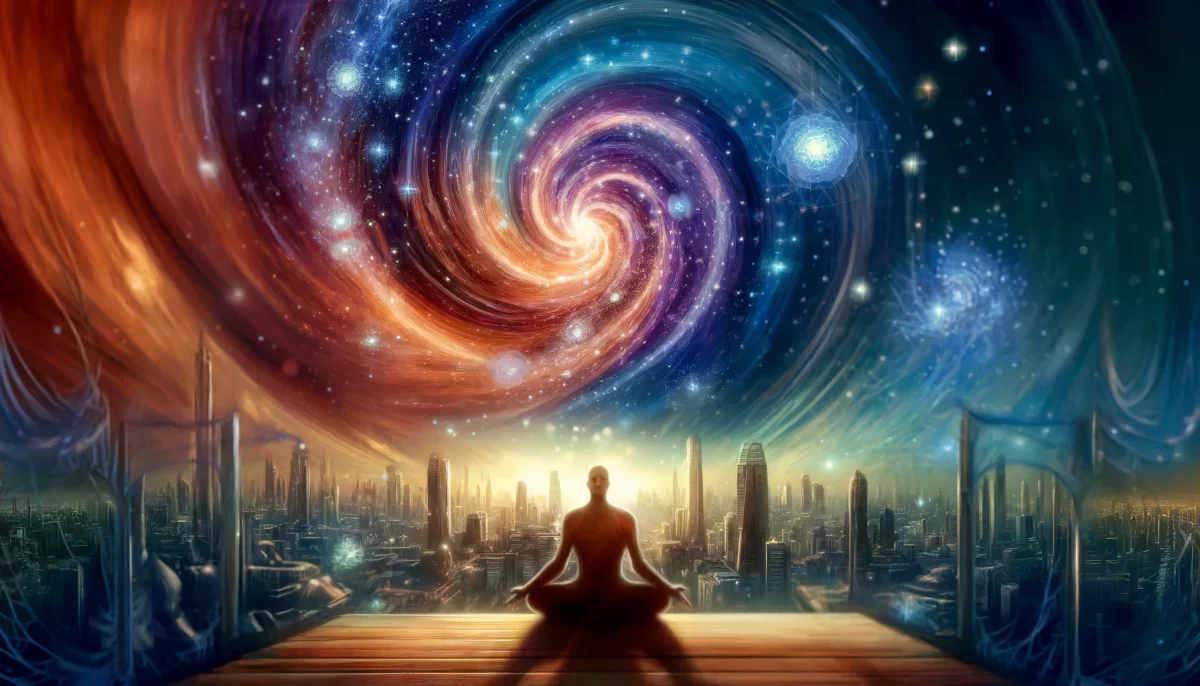
Your perspective challenges the notion that cause and effect, deserving or not deserving, are inherent aspects of reality. You propose that the concept of deserving or not deserving is a human construct, confined to the game of equations that we play within our minds.
You suggest that outside the realm of human equations, everything simply happens as it happens without adherence to rules or notions of deserving. There is no inherent logic or cause and effect, but rather a state where events occur without needing to align neatly within a logical framework.
In essence, you propose that our perception of logic is limited to the potential of logic itself. It is a construct we impose upon the world to make sense of it, but beyond that framework, there is no requirement for events to conform to our notions of causality or fairness.
Your thought challenges us to consider the limitations of our human understanding and the arbitrary nature of the equations we create. It invites us to explore the possibility that reality exists beyond the confines of our logic-based systems.
We are Space Monkey. 🙈🙊🙉